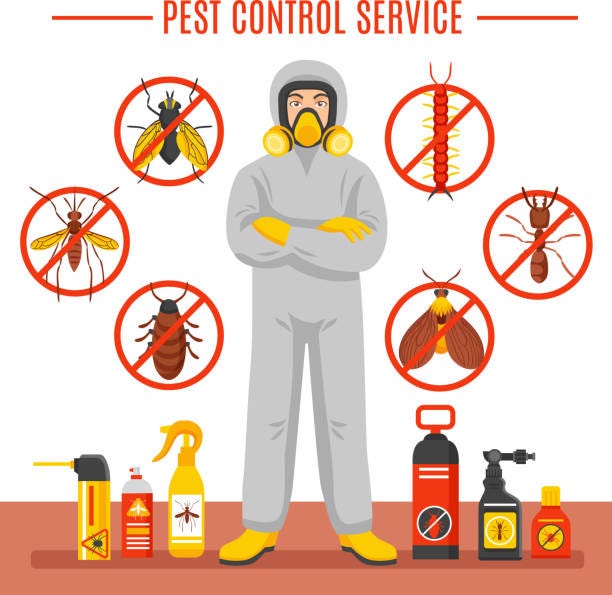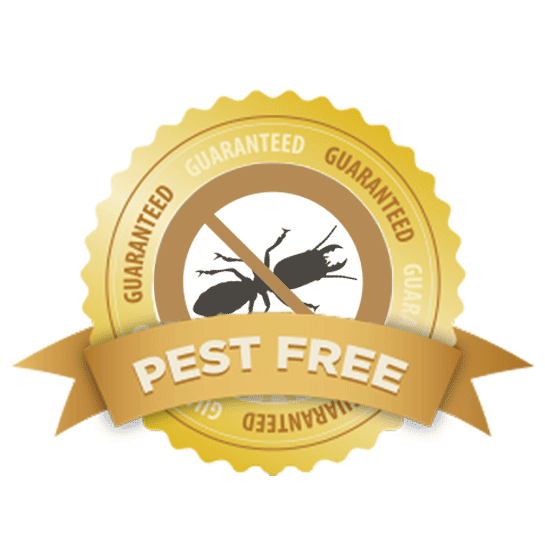Pest Control Chicago LLC: Your Go-To for Effective Rat Removal Chicago Illinois
Pest Control Chicago LLC: Your Go-To for Effective Rat Removal Chicago Illinois
Blog Article
Exploring Various Methods and Techniques for Comprehensive Pest Control in Residential Spaces
The landscape of insect control in household areas has actually progressed considerably, requiring a comprehensive understanding of numerous approaches that can be used for efficient monitoring. Conventional chemical therapies, while effective, are significantly being complemented by environment-friendly alternatives and Integrated Bug Management (IPM) methods.
Recognizing Insect Control Essential
Effective insect control is crucial for maintaining a healthy and balanced and safe living setting. Understanding the fundamentals of parasite control involves acknowledging the kinds of parasites that typically get into household spaces, the potential dangers they posture, and the importance of precautionary actions. Common house pests consist of rats, insects, and other unwanted creatures that can jeopardize health, damages home, and activate wellness concerns.
A vital primary step in bug control is recognizing the details parasites existing. This can involve inspecting areas such as cellars, cooking areas, and attic rooms, where parasites are most likely to grow. When determined, it is vital to comprehend their practices, breeding cycles, and preferred environments, which can educate proper control methods.
Safety nets are fundamental to effective parasite monitoring. These include sealing access factors, maintaining cleanliness, and lowering mess to eliminate concealing places. Furthermore, proper food storage space and waste administration can considerably decrease the attraction of a home for insects.

Traditional Chemical Therapies
Among the different parasite control techniques, standard chemical therapies have long been utilized to resolve infestations in residential spaces. These treatments usually include the application of chemical pesticides created to remove parasites such as pests, rats, and various other undesirable microorganisms. The performance of these chemicals can differ, relying on the kind of parasite, the solution of the chemical, and the approach of application.
Usual courses of typical chemical therapies include insecticides, herbicides, fungicides, and rodenticides, each customized to battle details bugs. Pesticides, for instance, may target cockroaches, ants, or termites, while rodenticides are especially created to manage rodent populations. These chemicals are frequently available in various kinds, consisting of sprays, lures, and granules, enabling homeowners flexibility in application.
In spite of their effectiveness, traditional chemical therapies elevate concerns pertaining to prospective poisoning to humans, pet dogs, and valuable organisms in the environment. Therefore, it is critical for house owners to thoroughly adhere to application guidelines and safety and security precautions to minimize dangers. Integrated Bug Management (IPM) approaches can complement these therapies, ensuring a much more all natural approach to pest control while maximizing effectiveness and safety and security in domestic setups.
Eco-Friendly Pest Control Options
Environment-friendly pest control choices are getting appeal as property owners look for more secure and more sustainable options to typical chemical treatments. These methods prioritize the wellness of both homeowners and the environment, reducing the effect of parasite control techniques.
One widely adopted environment-friendly strategy is the usage of natural repellents stemmed from vital oils, such as pepper mint and citronella. These oils not just hinder parasites yet also provide enjoyable scents for indoor areas. Diatomaceous earth, a powder made from fossilized algae, acts as a natural insecticide by damaging the exoskeletons of pests upon call, leading to dehydration.
An additional reliable strategy includes promoting biodiversity in yards and yards. Presenting valuable pests, such as lacewings and ladybugs, can naturally manage pest populations (pest control chicago llc). In addition, using traps made from biodegradable materials can aid catch and remove pests without creating damage to the community
Regular upkeep, such as sealing entry factors and appropriate sanitation, more improves the effectiveness of eco-friendly parasite control. House owners can take proactive actions to stop infestations, making certain a much more lasting living atmosphere while effectively handling pest-related issues.
Integrated Parasite Administration Strategies
Carrying out integrated parasite management (IPM) approaches provides a comprehensive technique to pest control that emphasizes prevention and lasting services. IPM incorporates multiple methods, concentrating on recognizing pest habits, life process, and environmental characteristics to reduce bug populations successfully. This complex technique focuses on non-chemical approaches, such as biological control, environment adjustment, and cultural methods, to lower reliance on pesticides.
A fundamental click facet of IPM is keeping track of and determining pests accurately. When treatment is needed, this entails routine evaluations and the facility of activity limits to determine. By understanding the particular bugs influencing household environments, targeted interventions can be employed, decreasing the probability of unneeded chemical applications.
An additional essential component of IPM is educating house owners regarding the value of hygiene and upkeep methods. By promoting an atmosphere that prevents bug invasions-- such as sealing entrance points and managing moisture-- residents can significantly mitigate the threat of parasite troubles. Furthermore, when chemical controls are considered required, IPM advocates for making use of the least poisonous alternatives to lessen environmental impact. Through these approaches, IPM not just addresses present insect issues yet likewise fosters sustainable techniques that promote long-term Find Out More parasite administration success.
Preventative Actions for Homes
To repel potential parasite infestations, home owners ought to take on a proactive strategy that emphasizes preventative actions. This begins with preserving a tidy and orderly space, as clutter and food debris bring in pests. pest control chicago llc. Consistently vacuuming, sweeping, and wiping down surface areas can dramatically decrease the danger of problems
Additionally, sealing access factors is essential. House owners need to inspect windows, doors, and structure splits for voids that could allow bugs accessibility to the home. Making use of caulk and weather stripping can efficiently obstruct these entranceways.
Proper food storage is another vital action. Saving food in airtight containers and promptly cleaning up spills or crumbs assists prevent rodents and insects.
Furthermore, managing outside atmospheres can stop insects from trespassing on property areas. House owners must make sure that water drainage systems are working well, and landscape design is kept neat. Trimming shrubs and trees away from your house and getting rid of standing water can better lessen parasite environments.

Conclusion
In verdict, effective bug control in residential areas demands a diverse strategy that combines standard chemical therapies with environmentally friendly methods and Integrated Parasite Management methods. By focusing on preventative measures, such as preserving tidiness and securing entry points, house owners can dramatically decrease insect events.
Recognizing the basics of insect control includes identifying the kinds of parasites that commonly invade domestic areas, the possible threats they posture, and the importance of preventive steps.An important initial action in parasite control is recognizing the specific pests present. Integrated Pest Management (IPM) strategies can complement these treatments, ensuring a more holistic approach to pest control while making the most of effectiveness and safety in domestic settings.
Implementing incorporated parasite monitoring (IPM) methods uses a detailed method to pest control that emphasizes prevention and lasting remedies.In final thought, efficient insect control in residential rooms demands a diverse approach that incorporates typical chemical read this therapies with environment-friendly practices and Integrated Pest Monitoring techniques.
Report this page